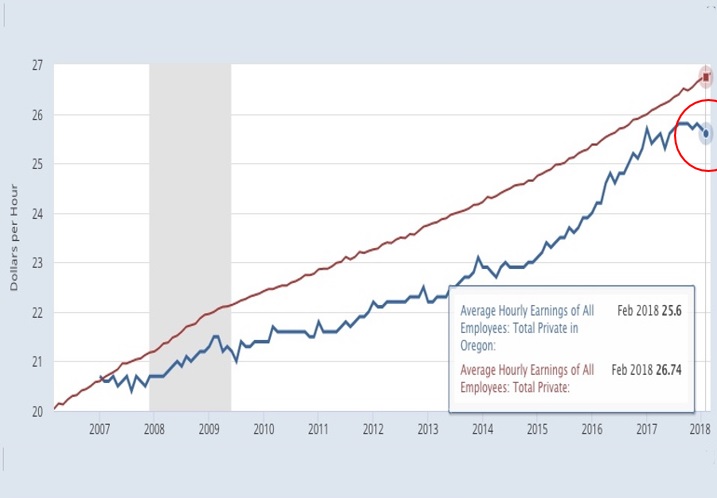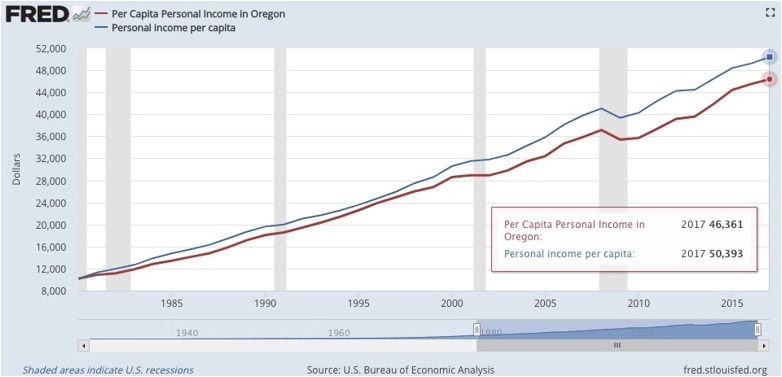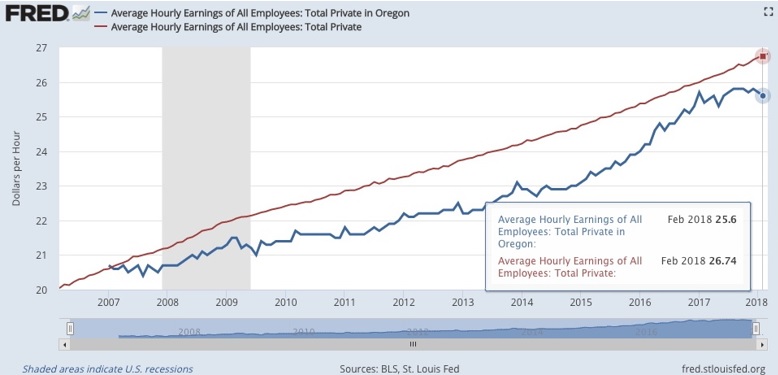By Taxpayer Association of Oregon Foundation,
Oregon’s income growth is lagging the nation and cannot keep pace with inflation.
According to data released by the federal Bureau of Economic Analysis last month, U.S. income growth per person grew by 2.4 percent. In contrast, personal income per person in Oregon increased by only 1.9 percent. To make matters worse, Oregonians faced inflation of 4.2 percent, driven largely by rising housing prices. Put another way, Oregon’s cost of living is growing more than twice as fast as Oregonians’ incomes.
Per capita personal income in the state is also lagging the nation as a whole. In 1980, Oregonian income were about the same as the rest of the country. The 1982 recession hit the state especially hard dragged down Oregon incomes. Since then, Oregon incomes continued on a slow-growth path, growing the gap between the state and the rest of the country. The latest data, for 2017, shows at $46,361, Oregon per capita personal income is now eight percent below the national average.
Wages are a key component of personal income and Oregon wages are also lagging the rest of the U.S. At the beginning of 2007, average hourly earnings in the state were the same as the national average. While hourly earnings in the U.S. continued a steady increase—even throughout the Great Recession—Oregon earnings lagged. Despite rapid wage gains since 2015, the average hourly wage in the state is currently four percent lower than the U.S. as a whole.
While Oregonians may see more money in their paychecks than last year, rising prices in the state are taking away all of those gains, and then some. If Oregon ever hopes to catch up with the rest of the U.S., the state must enact policies that foster wage and income growth.
Disclaimer: Articles featured on Oregon Report are the creation, responsibility and opinion of the authoring individual or organization which is featured at the top of every article.




